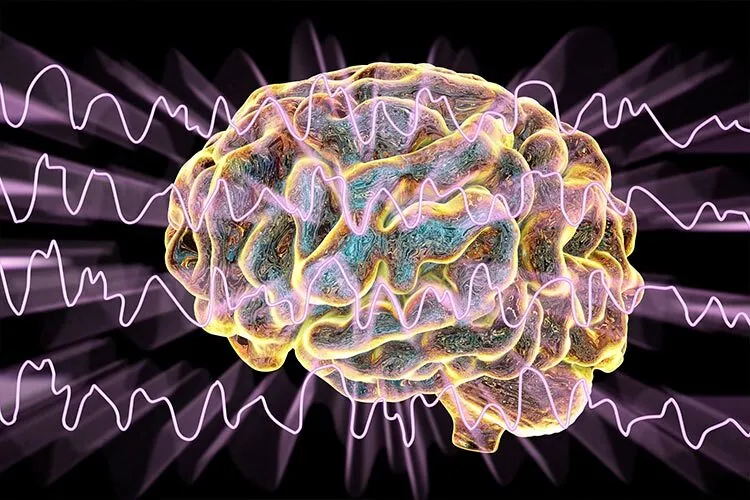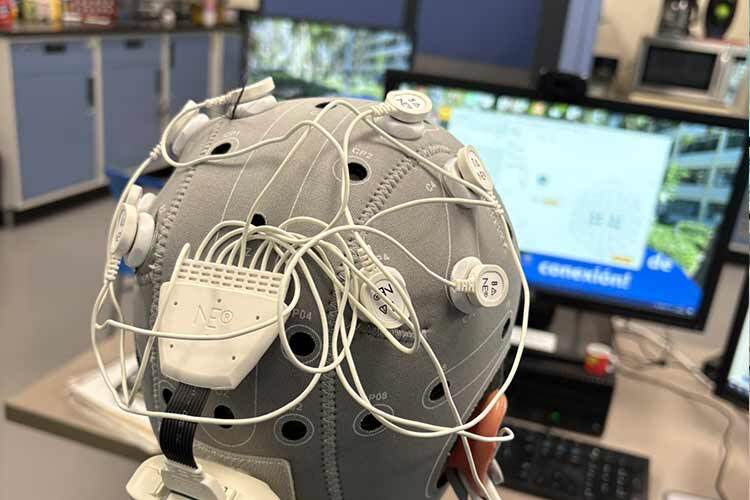It’s 10 o’clock at night. It’s dark, so relaxation, tiredness, and yawning begin. The brain begins to produce melatonin, the hormone that has an impact on the physiological and metabolic cycles of cells.
“It’s a circadian rhythm, which is linked to the rotation of the earth. The absence of light is the main indicator for our biological clock, known as the suprachiasmatic nucleus, which is located just above where the nerves of the eyes cross,” explains Reyes Haro, President of the Mexican Sleep Society.
Stages of Sleep: What Happens in Each?
Sleep begins with the first of four stages of sleep, each of which is divided into 90-minute cycles. Both the first and second stages or phases of sleep are known as ‘light sleep’, during which the body can still move. In fact, we can even hear some noises. People who suffer from insomnia, for example, can take more than 40 minutes to reach this point.
“The first and second phases are transitional; the brain begins to work more slowly and in more organized waves than when we are awake. However, we are still aware of the environment around us, which is why it’s easy to wake up during these phases,” says Raúl Martínez, a specialist in sleep disorders at TecSalud and professor at Tec de Monterrey.
If the night continues without any unexpected events, after approximately 55 minutes of sleep (about 60% of the total cycle), we move on to the third phase of sleep.
This is a cleaning and repair stage. The glymphatic system (the brain’s lymphatic system) starts to work and cleans away the toxins and proteins that were generated during the day. Going through this stage means that our neurons can communicate with each other without any problems the next day.
This stage is essential for children and adolescents because it produces the growth hormone. If we begin to snore, for example, this is the sleep stage that is affected.
“The more a person snores, the less of third stage they will go through. Therefore, they gain weight, they are more tired, and they get sicker than normal, because the third stage is that which protects us from illness,” says Reyes Haro.
The Fourth Stage
Finally, in the final stage of the cycle, the brain disconnects from the body and we don’t move. This is the fourth stage, better known as REM (Rapid Eye Movement). It’s the time when we dream. This is the time when all the things we learned during the day are filed away as if they were in a library.
“The interesting thing is that connections are made with things we already know. It’s that link that generates creativity. Thus, sleeping makes us more creative. When we are going through periods of very intense learning, sleep is what is most important,” says Raúl Martínez.
An indicator of having gone through a good REM phase during the night is that we can clearly remember at least one of our dreams.
Neurological Disorders and Sleep
Óscar Sánchez, president of the Mexican Society for Sleep Research and Medicine, has researched how neurological diseases can affect sleep quality which, in turn, can cause the disorders to get worse.
Cognitive deterioration, he explains, is closely linked to sleep quality. Illnesses such as dementia, Parkinson’s, and other neurodegenerative disorders are caused by the brain no longer easily being able to dispose of an accumulation of toxic substances.
“Different substances accumulate and need to be cleaned every day. For example, alpha-synuclein is a protein that, if not cleaned, covers neuronal axons and destroys them. Similarly, beta-amyloid is a substance which, if not cleaned, reduces neuronal communication,” he explains.
The specialist explains that the length of deep sleep stages is shortened during depression. If the condition progresses, sleep and wakefulness cycles can reverse, meaning that a depressed patient sleeps during the day.
“There’s a failure in how the processes are regulated, and the patient becomes desperate and hopeless. That is when thoughts of self-harm or suicide can manifest and there is an increased risk that a person will hurt someone else,” he says.
There are also some forms of epilepsy that attack specific stages of sleep. For example, the stages of light sleep (the first and second phases) become difficult in some cases.
“Many forms of epilepsy can cause brain discharges during the night, and that prevents you from completing the sleep cycle,” says Sánchez.


















